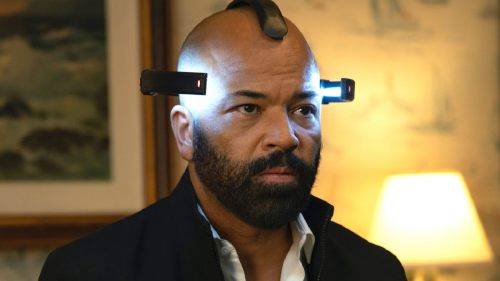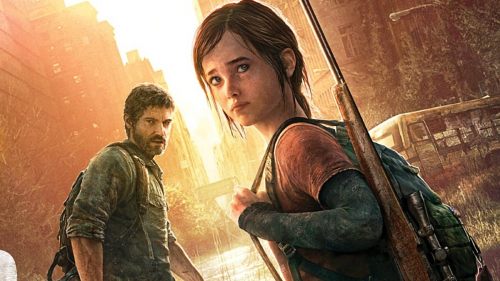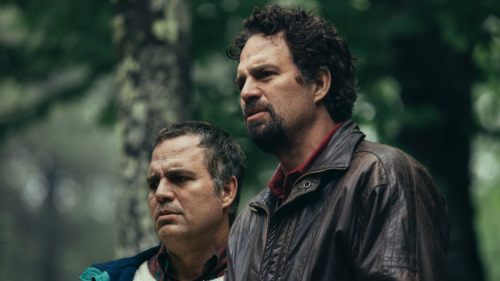“Much Like The Kurosawa Movie, Yojimbo”: BARRY Is The Best Thing On TV Right Now
"...and I said, well...'what if I was a hitman who wanted to become an actor?' And that kinda stuck."
That's how Bill Hader described his pitch for Barry to Executive Producer Alec Berg when I sat down and chatted with the two of them for during this year's SXSW Film Fest. At that point, I'd only seen the first two episodes, but was undoubtedly onboard with its rather potent mix of pathos and uncomfortable chuckles (read my review of that hour here). Strangely enough, Hader's admittance that he sort of threw the concept at the wall to see what would stick with his creative partner put my mind at ease. Sometimes the very best works are derived from log lines pulled out of thin air. Larry Cohen (The Stuff, It's Alive) made an entire career out of that, sometimes plucking high-concept genre cinema hooks off the covers of magazines while sitting in a lobby waiting to be called back for his own sales session with a producer.
But by the season finale, this writer wasn't fully prepared – even with that conversation echoing in the back of his mind the whole time – for just how many dark alleys Barry was willing to traverse, revealing a whole other side to Hader that we hadn't seen yet. A consummate cinephile, Hader works so many references – both visual and narrative – into his story about the titular hitman, learning to try and be human through acting and failing. "There's a whole scene where I have to play out Glengarry Glen Ross: The Movie on stage for the class that we said 'no, it's gotta be that'," he said, describing one of the stranger budget hurdles the thirty-minute dramedy faced: obtaining rights to even use these other pieces in their own story (apparently, they had to make a few changes along the way). Yet these reference points were so critical to the overall vision that the creatives made space in their financial plan to accommodate such costly demands.
Just like Documentary Now! – Hader’s IFC series that reworks iconoclastic pieces of non-fiction filmmaking into hilarious parody (see: Gentle & Soft: The Story of the Blue Jean Committee for my favorite example) – every episode is packed with eye-catching detail and character work that dips just enough into cartoonish territory to help balance the darkness in the aspiring actor's soul. A rather lengthy action sequence in the fourth "Chapter" – each of which are named for a section from acting coach Gene Cousineau's (Henry Winker) self-penned class text ("Make The Unsafe Choice") – showcases the series' flair for violence. "We really wanted to bring a true cinematic look, even in a thirty-minute show,” Berg says to me. “[Cinematographer] Paula [Huidobro] really lead the way on that." Even though DP Brandon Trost's (Popstar) name being on the pilot was attractive to many, Hader agrees, "Paula kept us from fucking this up, big time."
Hiro Murai is having a well-documented breakout year, what with his directorial work on the other contender for "Best Series Of ‘18" (Atlanta), and the recent short for Childish Gambino's "This Is America" (which Todd Gilchrist dissected in detail for us here). A seasoned music video director, Murai's vision not only brought a simplistic slickness to two of the series' best episodes – "Do Your Job" and "Listen With Your Eyes, React With Your Face" – but he's also responsible for a few of the series' most remarkable visual moments. That stash house set piece in "Chapter Five" that sees Barry and his unhinged partner Taylor (Dale Pavinski) machine-gunning multiple thugs to death? That's Murai. Or the harrowing flash at the end of "Chapter Six" where we watch from the backseat of an SUV as Barry and his military associates are tossed aside like rag tolls while taking fire from a gaggle of Bolivian drug mercenaries? Also Murai. So, while Hader headed behind the camera to live out some of his wildest film geek dreams – filled with dark shadows and David Wingo's pulsing electronic music – he and Berg also recruited top-tier talent to help bring this tragically funny tale to life.
"I liked it because it sounded like one of those old crime writers," Hader said to me about Barry Berkman’s acting class "stage name", Barry Block, before chuckling a little bit. While this tidbit may seem like an inconsequential aside at first, it's rather insightful into what Barry's persona represents as part of the character's whole, even subconsciously. It's good to remember the killer discovers Gene’s class by accident, and never really becomes enthralled by the idea of "acting", but instead of finally being allowed to become a person, like other people (to quote another famous sociopath). Yet there's still an element of violence in Barry's assumed alias, as he's never able to leave the one thing he's truly good at behind. At the same time, the pseudonym allows him to confess his crimes – such as he does to Cousineau in the parking lot, a moment of pure truth that convinces the teacher Barry belongs in class – without any sort of legal repercussions. "Acting and these classes are sort of like a form of therapy for artists who often don't have healthcare," Hader says, and we're seeing Barry attempting to achieve some sort of mental/spiritual cleansing, while everyone else just thinks he's another nobody, trying to be somebody.
Bill Hader has always been a gifted funnyman, and showed tremendous screen presence in comedies such as Hot Rod and Trainwreck (the latter allowing him to play Amy Schumer's dorky but successful love interest). There have been a smattering of semi-dramatic roles along the way (think: Craig Johnson's The Skeleton Twins), but nothing that has really shown Hader to be a great actor. Until now. Barry Berkman/Block sees Hader really exploring the depths of one character – shifting from his trademark deadpan delivery to a stone cold killer, sometimes in the same scene. His puppy dog pursuit of scene partner Sally (Sarah Goldberg) is as cute as it is melancholy, their relationship bottoming out when Barry can barely read simple social cues (and also tries to give her a $2000 laptop as a present after only hooking up once). A moment when the hitman has to confront a buddy from his former platoon (Chris Marquette) becomes one of the show's most chilling, as self-preservation prevents Barry from letting anyone who knows too much about his real line of work walk away unscathed. The resulting trauma is then translated to theater, as Hader rather miraculously lets us in on the show's central thesis through his gracefully on-point performance.
Surrounding Hader is a supporting cast who all turn in incredible work. Henry Winkler is positively transcendent as Gene Cousineau – an obvious “never was” who still has love in his heart for all his students, and a rather aching loneliness that leads to one of Barry’s sweetest relationships: his attempted courtship with obsessive homicide detective Janice Moss (Paula Newsome). “You only get to work with someone as good as Henry a few times in your life,” Berg said to me, and I wonder if that same sentiment could be extended toward Glenn Fleshler and Anthony Carrigan. Their Goran Pazar and NoHo Hank are some of the funniest bad men we’ve seen on screen in some time, as Pazar comes off like a more stressed, Eurotrash version of Tony Soprano, and NoHo Hank is his emoji-spitting right hand. Watching them drive Barry and his handler Fuches – a guttural, goofy Stephen Root – right up the wall with their cartoon Chechen antics is the light touch this rather gloomy material needs to avoid ever becoming oppressive.
Yet it’s the darkness that's likely to stay with the viewer, especially after the final "Chapter" ("Know Your Truth") reaches that last, shattering cut to black. Comparisons to Breaking Bad have already been made by many, but the tonal balance here seems even more delicate than even that iconic suspense series. Nobody tuned in to Barry expecting a treatise on the unshakable evils of man, yet that's where the show leaves us: hanging on by an emotional thread, breathless and unable to comprehend where it can even go from there. By reconfiguring the half-hour comedy into a potent mixture of existential angst, pulp thrills, goofy comedy, and horror movie despair, Hader and Berg have crafted something wholly unique that's also undeniably accessible by mainstream standards. Better yet, the initial run of Barry tells a complete story, delivering some wholly satisfying arcs. We're left desperately desiring more, but also thoroughly satiated, as if Hader and Berg both knew that the idea they threw at the wall might not stick*, so they should bring this character on a alternately terrifying and hilarious journey, questioning if any aspect of his tarnished soul was affected by the art he stumbled upon.



